The FBI came to Jen Salen’s door on Wednesday afternoon. Shocked would not even come close to describing her astonishment.
“I cried a lot on Wednesday, and I’ve been crying a lot [since],” she told RFA.
Earlier that day, Yuanjun Tang, a well-known Chinese dissident in New York who had been married to Salen until June of this year, had been arrested on charges of secretly spying for Beijing.
Salen, 55, is not named in the filings against him and is not accused of any wrongdoing.
But there was a complication: throughout their marriage, she has worked for the Congressional Executive Committee on China, or CECC.
The commission organizes hearings and publishes annual reports advising Congress and the White House on human rights and rule of law issues in China.
The FBI had questions.
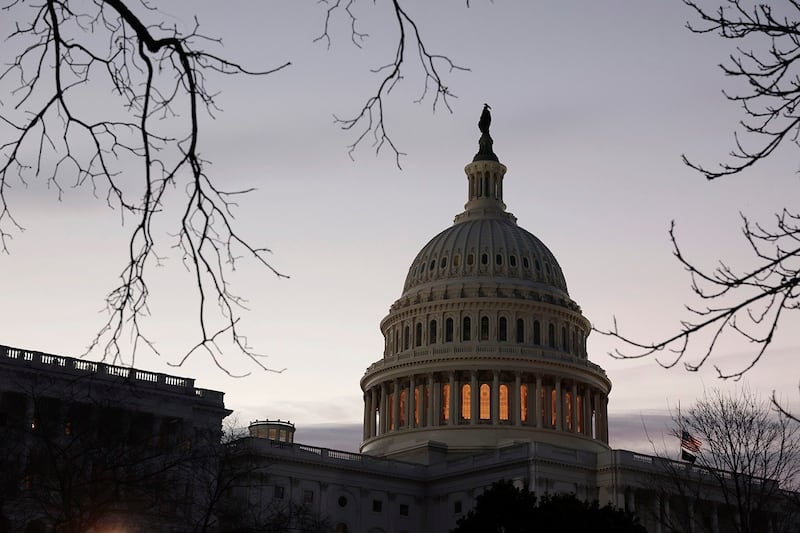
Salen said that she had spoken to the FBI for the first time on Wednesday, and that she had been placed on a paid leave by the CECC two days after Tang’s arrest. By Monday, the laptop she used to do her work sat inert on her desk, switched off and awaiting to be sent back to the U.S. government.
Despite the dizzying turn of events, Salen told RFA: “You can certainly say that I still care very deeply about him,” adding that an accused person is innocent until proven guilty.
Indeed, in speaking to over a dozen sources close to the case, what emerges is a deeply paradoxical and tragic story of murky allegiances and personal betrayals.
But the revelation of Tang’s family ties to the U.S. government, as well as allegations that he was directed by Chinese agents to keep close tabs on specific U.S. political goings-on, raises uncomfortable questions about how deeply Chinese intelligence can penetrate American democracy.
When first contacted by RFA last week and asked if she was concerned that her work for the government could have been compromised by Tang, Salen gave a long pause before declining to answer.
A shock arrest
On Aug. 21, Tang was arrested at his office in Flushing, New York, after being charged with acting as an unregistered foreign agent, conspiracy and making false statements.
According to prosecutors in the Southern District of New York, Tang – who had been an active participant in the 1989 Tiananmen Square democracy protests – had been passing sensitive information on U.S.-based dissidents as well as a U.S. congressional candidate to a handler at the Chinese Ministry of State Security, or MSS, from 2018 until 2023. He was questioned by the FBI last July.
Tang and Salen were married from March 2012 to June 2024, though they only lived together during parts of that time, according to Salen and public records of their registered addresses.
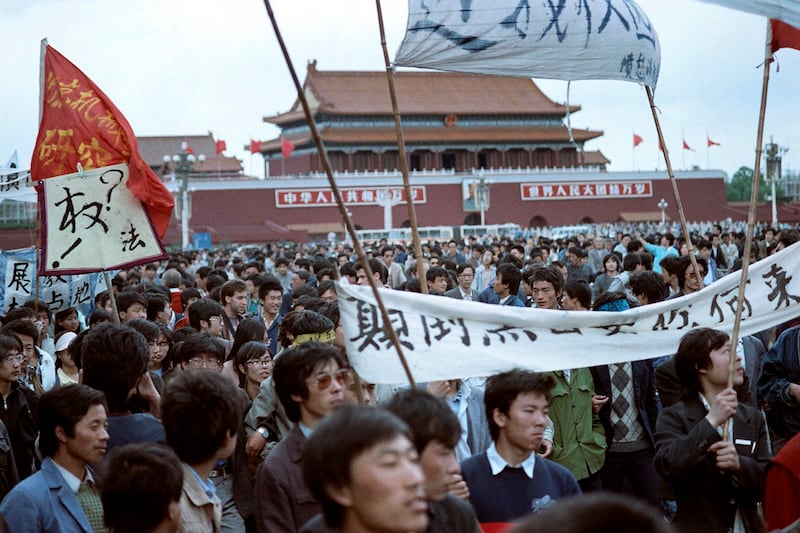
Repeated calls to Tang’s lawyer were not answered. Tang declined to be interviewed but clarified to RFA through an intermediary that he never informed his then-wife of his alleged contacts with the MSS.
Although work done by the CECC does not involve classified information, and Salen would not have had access to government papers deemed classified or confidential, access to contacts and knowledge of its working would still be of value to Beijing.
Staffers often interact with members of the Chinese diaspora, and the commission organizes hearings and meetings that put government officials, Chinese dissidents and civil society members together, sometimes behind closed doors.
RFA gave CECC a detailed list of questions, including when it became aware of the situation regarding Tang, how this could affect the work Salen was doing for the commission, what security protocols were in place, and what was being done to fairly protect staff and sources for the CECC, as well as Salen.
A spokesperson for the commission said in an email: “While this is a confidential personnel matter, and law enforcement has given us no indication that our staffer was involved in, or had knowledge of, Mr. Tang's alleged activity, the extraordinary circumstances, and nature of the allegations regarding Mr. Tang lead us, out of an abundance of caution, to take appropriate measures to ensure the safety of the Commission’s data and the privacy of its staff. We continue to work with the appropriate entities in their investigations and for the protection of the CECC's mission.”
They said the commission only became aware of the situation after Tang’s arrest.
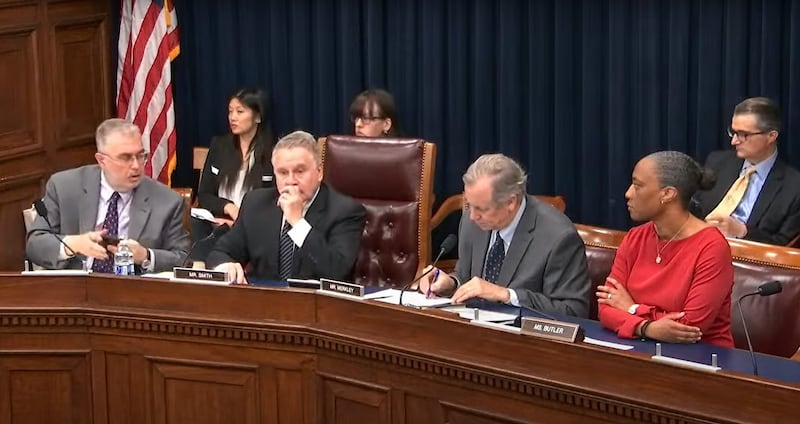
That “abundance of caution” appears to be warranted.
In an earlier interview discussing the verdict of another recent Chinese spy case, Peter Mattis, who was staff director at the CECC from 2019 to 2021, told RFA: "We need to think about intelligence not as being the collection of classified information. Intelligence is information to inform decision making, and not all decisions are about national defense and national security, right?"
“Some of them are, at least in the CCP. They're about political control. They're about controlling thought. They're about controlling overseas diaspora communities or being able to mobilize them effectively in support of national objectives.” (The case he was referring to also involved a dissident secretly spying for Beijing)
Mattis, who is now head of the non-profit Jamestown Foundation and no longer works in U.S. government, said he also only learned of Tang’s alleged activities after his arrest.
Political interests
Among the other allegations made by U.S. prosecutors is that Tang had transmitted photographs of a congressional candidate, information about a campaign strategy meeting for the candidate, and photos of members of Congress to the MSS through one of six phones seized by the FBI.
One of these phones appeared to have surveillance software installed onto it, the complaint said.
Although he is not named in the complaint against Tang, the congressional candidate he allegedly surveilled is Yan Xiong, a dissident who ran in the Democratic primary for New York’s 10th congressional district in 2022.
Xiong told RFA: “That’s me in the complaint — the 'congressional candidate' Tang allegedly passed information [about] to the MSS.” He said that although the FBI never contacted him, he recognized himself from the details and descriptions in the complaint.
Xiong faced significant harassment during his 2022 campaign, including fake claims of child pornography and tax evasion. He noted that he faced harassment during the campaign and that it placed a significant strain on his family. "I am still suffering from the consequences," he said. He has no plans to return to politics.
He said he had no suspicions about Tang at the time. “Campaigns require a lot of help, so I asked him to assist. I was never suspicious of him.”
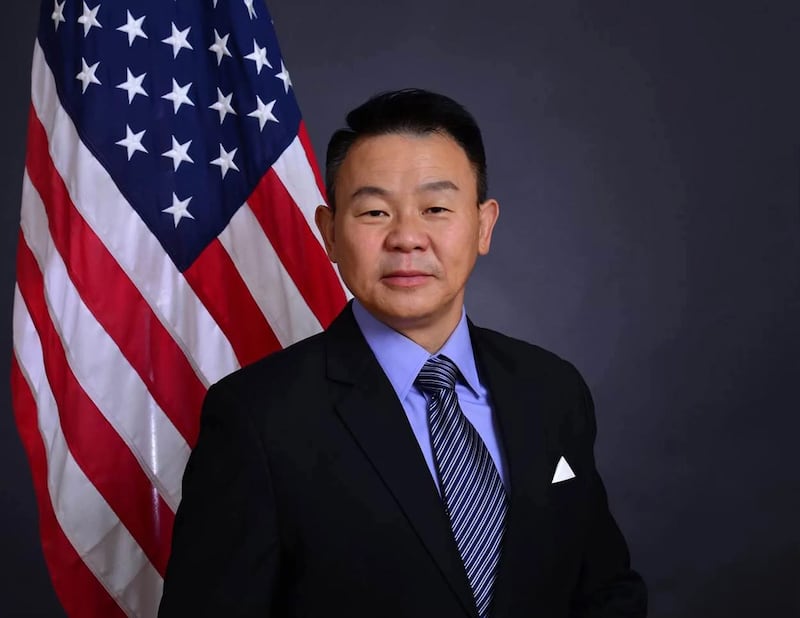
Xiong learned of Tang’s arrest from the news and was surprised by the details. “I trust the U.S. Department of Justice, but I also believe Tang’s story is a tragedy. He broke the law, but he is also a victim of the CCP,” he said, adding: “I'll still pray for him.”
Betrayals and understandings
The arrest has sent shockwaves through the U.S.-based Chinese pro-democracy community – a tight-knit group of dissidents, many of whom were participants or leaders in the 1989 protest that triggered a global outcry and an exodus of young intellectuals and liberals from China.
The protest likewise shaped the views of a generation of young people in the West. “You know, in some ways, I'm also of the 1989 generation,” Salen (who is not of Asian descent herself) told RFA.
“I was a sophomore in college. I had just started taking Chinese history classes, and what happened in China in 1989 was part of my motivation to eventually study Chinese language and clearly feel that people have the right to freedom of expression, to publish with what they think … have their own right to religious belief, all those things that we take for granted here.”
Sources who spoke to RFA universally said they admired Salen’s commitment to promoting Chinese democracy and the dissident community, through which she met Tang at a dumpling-making party in the mid-2000s.
Tang, now 67, was a young factory worker at the time of the Tiananmen protests. He later defected by swimming to Taiwan from a Chinese fishing boat. He eventually came to the U.S. and was granted asylum.
Another dissident, who asked for anonymity to speak openly about a sensitive issue, recalled meeting him some 20 years ago when he first arrived. “He was a spirited young man, full of ideals. You know, he had been imprisoned in China, then fled to Taiwan, and later came to the U.S.,” they said.
Despite meeting his wife and settling in the U.S., Tang had a difficult time and exile had been “a very, very painful experience” for him, the person said.
“He was very filial, and he cared deeply about his mother. We all knew he wanted to return to China in 2018 (when she fell ill). His brother is disabled. Later, his mother and brother both passed away.
“I later saw him a few times in Flushing, sometimes on the street. He looked very down and out,” the person told RFA.
Prosecutors allege that Tang began working for the MSS in 2018 in exchange for being allowed to go back to China to visit his family. His orders included taking pictures and videos of people of interest to the intelligence service and passing information about their whereabouts to a handler. The MSS paid Tang’s family in mainland China, prosecutors said.
He is also alleged to have invited an MSS agent to a chat group he set up for dissidents – including some seeking asylum in the U.S. – and to have passed information about asylum-seeking to a handler.
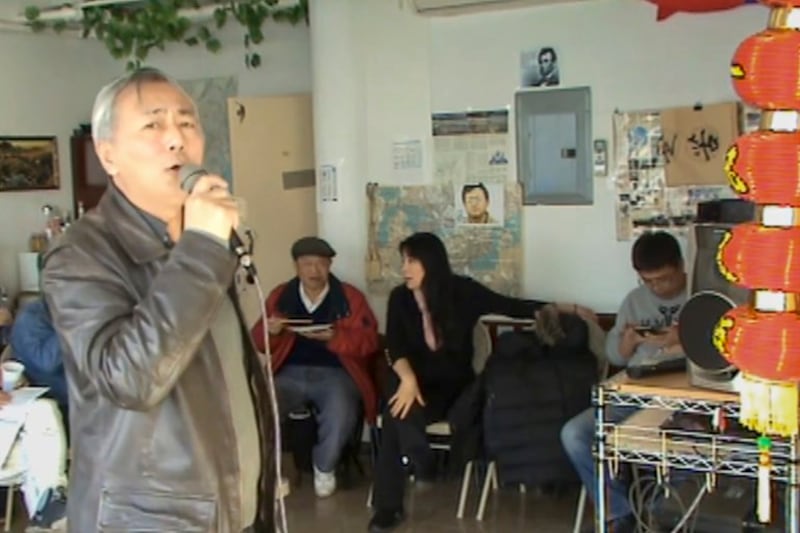
Younger dissidents close to Tang – some of whom were recently arrived from China – told RFA they had looked up to him as almost a mentor figure who regaled them with tales of being jailed by the Chinese government and promised to help them navigate the U.S. asylum process.
His arrest has left them worried, said Chao Xu, 32, who came to the United States in the summer of 2023.
"I'm really worried now because every time we went to protests or demonstrations against the CCP, Tang would take photos and videos of us up close. China could use facial recognition to quickly identify us and our families back home. Of course, I'm scared," he said.
Another dissident, Kuijun Wu, 30, who also arrived in the U.S. last year, told RFA that there is widespread panic among a group of over 50 newcomers. They had provided Tang with their personal information, including their addresses in China, when they joined the party he led.
"We risked our lives to come to the U.S., and now our leader is a spy. What are we supposed to do?" he said.
Tang has been under house arrest since being released on an unsecured $100,000 bond. Since then, he has privately expressed remorse to friends, telling close associates that he was sorry for letting America down and particularly regretted affecting his former partner, several sources told RFA.
SEE RELATED STORIES
[ Historian. Activist. Spy?Opens in new window ]
[ 5 things the Shujun Wang trial revealed about Chinese espionageOpens in new window ]
[ Podcast: "Master of Deceit": The trial of Shujun WangOpens in new window ]
[ Secret police station is mere sliver of Beijing's U.S. harassment pushOpens in new window ]
Salen referred most of RFA’s questions about Tang to his lawyer, but did offer a thought on one matter.
“I noticed that a lot of reports on him are saying he was ‘a former democracy activist.’ I think ‘former’ is incorrect. He still is a democracy activist,” she said. “I think the [Chinese] exile community is very complex. Everyone knows the exile community is very complex, and also there's a lot of debate and dissension.”
Nick Eftimiades, a former CIA analyst who has worked extensively on Chinese intelligence cases, told RFA that while it remains to be seen whether there is wider cause for concern given Tang’s family tie to U.S. government work, the extent of China’s reach could be likened to the Stasi in East Germany, where a third of the population was pressed into this kind of service.
“It destroyed families and relationships as people were recruited to spy on each other and other targets of the regime. I think we’re seeing the same thing here,” he said. “The question now is, can the United States and so many European countries keep their populations safe from the CCP, which strikes at the very heart of their sovereignty?”
The Department of Justice declined to comment on the case.
Edited by Boer Deng
